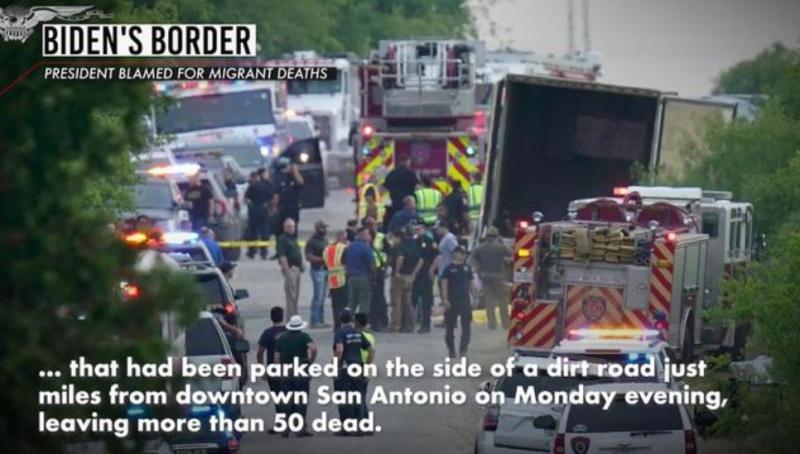Biden's border messaging can't compete with cartel-hyped reality of 1M migrant releases | Washington Examiner
Category: News & Politics
Via: texan1211 • 3 years ago • 7 commentsBy: anna-giaritelli (Washington Examiner)



The Biden administration's "do not come" message to migrants abroad isn't achieving results nearly a year and a half later.
For nearly 18 months, President Joe Biden has been unable to convince migrants outside the United States not to cross the southern border illegally — but not for lack of trying, the White House has argued.
"With all due respect about messaging, it's not getting through," Rep. Henry Cuellar (D-TX) said in an interview with the Washington Examiner.
In interviews with the Washington Examiner, those who monitor Latin American media said Biden's message of a closed border, repeated just Tuesday by White House press secretary Karine Jean-Pierre, is not resonating with desperate migrants seeking to escape hardships at home for the prospect of a new start in the U.S. Biden's message of "do not come" cannot compete with the text messages of relatives who have successfully made it across the border and been let go into the country.
Since Biden took office, border officials have made 2.975 million encounters with noncitizens attempting to enter the country illegally. Of that figure, 1,049,532 people were released into the interior, according to Justice Department court documents filed over the past year.
In some circumstances, the government has gotten foreign media in Mexico and Central America to echo its message that now is not the time to come to the U.S. For example, Guatemalan media reports on caravans headed from southern Mexico to the U.S. often included comments from Guatemalan officials telling citizens that the U.S. border is "not open," according to Jorge Bonilla, who monitors Latin media for the Media Research Center, a conservative-leaning watchdog.
Dr. Guadalupe Correa-Cabrera, professor at George Mason University's Schar School of Policy and Government in Virginia, said foreign media coverage of the border and immigration policy has not had a "major impact" on people's decision to migrate.
Adam Isacson, a top U.S. analyst on migration for the human rights group Washington Office on Latin America, said the messaging from Washington fails to correspond with the realities that many face in their home countries.
"I don't think that it really changes any Central American would-be migrants' decision-making if some Customs and Border Protection official says it's dangerous in the desert," Isacson said. "If you're living in the slums of San Pedro Sula and there's gangs and bullets everywhere, you're like, 'Well, guess what? It's dangerous here.' And I think people are willing to risk it. And that, of course, the word of the nameless CBP official is up against the word of the smuggler."
Smugglers, who often work for or with transnational criminal organizations known as cartels, are able to show would-be migrants examples of people who they have successfully smuggled to the U.S. In addition, Isacson said, family and friends in the U.S. are quick to report back to loved ones back home that they made it either by sneaking in or being released by the Border Patrol.
In May alone, U.S. border officials released more than 95,000 noncitizens into the U.S. of the 240,000 who were encountered attempting to enter unlawfully, according to federal court documents.
That reality conflicts with what Biden has claimed about a closed border. Even the risks of making the journey through jungles and cartel-infested cities can seem worthwhile.
"The United States has never estimated this much, but say 1,000 migrants die," Isacson said. "But how many migrants have been released in the United States or were getaways? Almost a million? So you've got a 1 in 1,000 chance of dying. That's a lot better than flying in a plane without a mask on right now."
Cuellar said the White House needs to change its message from warning people against coming to instead showing people what happens to those who illegally cross the border and are deported.
"The only images of people at the border are [of them] coming in. We don't show any images of people being deported. They deport hundreds of thousands of people, but they're afraid to show those images. And I know that because I did talk to somebody. They said, 'Well, we don't want to get our immigration activists angry at us,'" Cuellar said. "I said, 'Well, you got to do what the law is. The law says deport somebody. What's wrong with showing them being deported?' So I think that messaging has to have images tied in."





"...officials have made 2.975 million encounters..."
How many didn't want to get caught?
These folks obviously -
Honduran migrants found crammed into tool boxes in El Paso, Texas